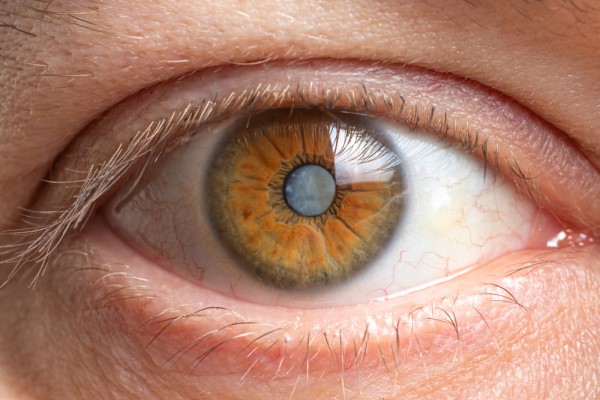When to Consider Surgery for Cataract Treatment

In this review, we primarily focus on surgical treatment for cataracts. We also discuss cataracts more broadly, focusing on why they develop and the signs and symptoms that patients often notice that lead to them seeking treatment.
Here is what you should know about cataract treatment and surgery
Developing a cataract can be a scary experience. The good news is that surgery often provides reliable, long-term relief. Here is everything to know about cataract treatment and surgery to help patients decide the best path for dealing with their cataract(s) in the long term.
What is a cataract?
A cataract occurs when there is clouding in the clear part of the lens. This can develop slowly over the course of a year or more and primarily impacts adults over the age of 40. Cataracts develop due to proteins in the eye lens breaking down and clumping together. The signs may start small and then grow progressively worse if there is no treatment intervention. The most common signs of cataracts are:
- Blurred vision
- Seeing "halos" around lights
- Sensitivity to light
- Inability to see in dim light
- Loss of vision (for severe cases)
Regular check-up visits with an optometrist are ideal for detecting cataracts as early as possible. Patients should also check for signs of sight complications and notify their optometrist if any concerns develop. For instance, many patients discover that they have a cataract by not being able to read the way that they used to and/or by needing to change their prescription eyeglasses.
What are the different types of cataract treatments?
Patients should seek treatment for cataracts as soon as possible, as they are not likely to improve on their own and may grow progressively worse. There is only one way to treat a cataract, which is via a surgical procedure to remove it.
However, in some cases, a management plan may be a better solution for the patient, depending on the severity of the cataract(s) and the patient's treatment preference. In particular, the management plan, rather than surgery, may be recommended if the cataract is not severe and the patient is not able or willing to go through a surgical procedure.
The recommended treatment depends on the severity of the cataract(s) and the patient's preference. Previous treatment history and genetic information may also play a role in determining the best course of action.
When is surgery recommended by an optometrist?
Surgery is the only effective cataract treatment. For minor cataracts that do not seem to worsen, a change to prescription glasses may serve as a temporary treatment. However, this does not cure the cataract. Therefore, to ensure long-term relief of the cataract and to avoid it worsening, surgery is typically recommended by optometry professionals.
What can I expect during cataract surgery?
Cataract surgery involves a tiny incision being made in the eye to remove the cataract and replace the cloudy lens with a clear plastic one. Patients typically do not feel any discomfort during the procedure. The surgeon provides an anesthetic to help the patient relax and to numb the area. Overall, it is a minimally invasive procedure that usually takes less than an hour to complete.
What risks are involved with cataract surgery?
There are certain risks associated with cataract surgery (as is the case with all surgical procedures). The most common long-term complication is posterior capsular opacification (PCO). This is also referred to as a "second cataract" and occurs in approximately 20% of patients. Fortunately, PCO is easily resolved with a laser procedure in most cases. Patients can expect certain side effects after having cataract surgery, including the following:
- Temporary eye inflammation
- Temporary eye discomfort
- Minor bleeding
- Sleepiness
- Drooping eyelids
The side effects should go away within a few days. In rare cases, infections can develop. The eye doctor should provide a list of post-care instructions to help control eye inflammation and discomfort. A follow-up visit is also usually scheduled to further ensure that no complications result from the procedure.
Contact our optometry office today to schedule a visit
A consultation visit with a licensed optometrist is the best way to determine if cataract surgery (or another form of cataract treatment) is right for you. Here at our office, we provide diagnostic services and can help you put together a treatment plan based on the severity of your cataract. Please do contact us today in order to receive more information and to schedule a visit.
Get more information here: https://www.texasoptical.net or call Texas Optical at (214) 771-7333
Check out what others are saying about our services on Yelp: Read our Yelp reviews.
Recent Posts
Transitions lenses are an adaptive choice for prescription eyeglasses. Although you can purchase two pairs of eyeglasses — clear prescription eyeglasses and prescription sunglasses — it can be a hassle to lug them around and repeatedly have to switch between them. Not only do transitions lenses eliminate this inconvenience, but they also offer a plethora…
Typically, people only see an optometrist once a year or every two years. However, several instances require emergency eye care. Emergency eye care goes beyond a routine inspection, though the latter can help prevent many symptoms from manifesting. Here are eight signs that warrant an impromptu trip to the optometrist.Burning or itching can result from…
Maintaining healthy eyes is essential for overall well-being and quality of life. Optometry, the healthcare field dedicated to diagnosing and treating eye conditions, is critical in ensuring optimal vision and eye health. Regular eye checkups are a fundamental part of this process, as they help detect potential problems early and provide guidance for maintaining healthy…
The eyes are lamps for the brain, so receiving regular vision tests is a good idea. Depending on the general health of your eyes and the rest of your body, you may need one of these comprehensive assessments once a year or every two years. They allow the optometrist to ensure each eye's internal and…


